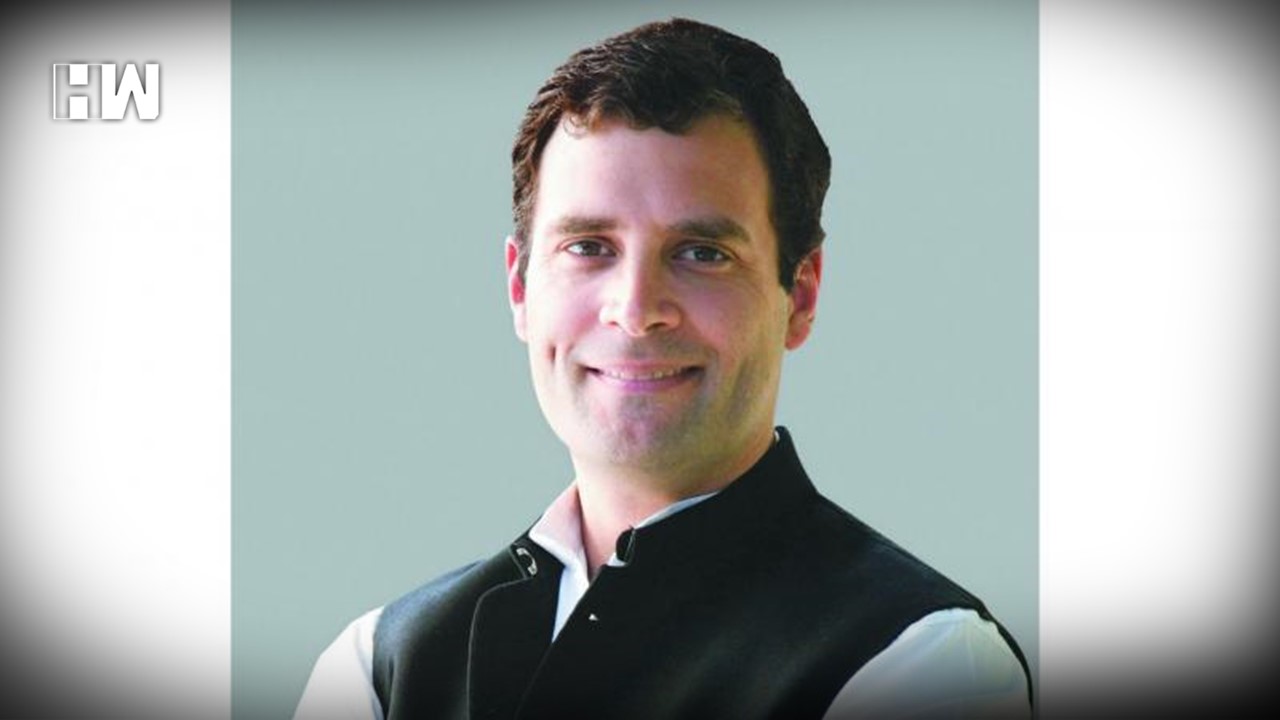
Rahul gandhi’s political journey since 2004 - hw news english
- Select a language for the TTS:
- UK English Female
- UK English Male
- US English Female
- US English Male
- Australian Female
- Australian Male
- Language selected: (auto detect) - EN
Play all audios:

Rahul Gandhi was born in Delhi on 19 June 1970, as the first of the two children of Rajiv Gandhi, who later became the Prime Minister of India and Italian-born Sonia Gandhi, who later became
President of Indian National Congress, and as the grandson of then Prime Minister Indira Gandhi. Gandhi was admitted in St. Stephen’s College, Delhi in 1989 for his undergraduate education
but moved to Harvard University after the first year itself In 1991. When Rajiv Gandhi was assassinated by the Tamil Tigers during an election rally, he shifted to Rollins College in
Florida, USA, due to security concerns and obtained his B.A. in 1994. During his time at Rollins, he assumed the pseudonym Raul Vinci and his identity was known only to the university
officials and security agencies. He further went on to obtain an M.Phil from Trinity College, Cambridge in 1995. Ever since he made his political debut 14 years ago, Congressmen have held
their breath to see the Gandhi heir step into what was for long mysteriously called a “bigger role.” Through 10 years of the Congress-led UPA running the show at the centre, Mr Gandhi did
not join the government, choosing to work for the party as the MP from family bastion Amethi in Uttar Pradesh. At the time, this move generated surprise among political commentators, who had
regarded his sister Priyanka as being the more charismatic and likely to succeed. It generated speculation that the presence of a young member of India’s most famous political family would
popularize the Congress party’s political ideas among India’s youthful population. The Congress had been doing poorly in Uttar Pradesh, holding only 10 of the 80 Lok Sabha seats in the state
at the time of Rahul Gandhi’s debut in the political world but Gandhi won, retaining the family stronghold with a victory margin of over 100,000. Until 2006 he held no other portfolio.
Gandhi was appointed General Secretary of the All India Congress Committee on 24 September 2007 in a reshuffle of the party secretariat. In the same reshuffle, he was also given charge of
the Indian Youth Congress and the National Students Union of India. He was elevated to the position of the vice-president of the party in January 2013. That elevation was inevitable;
Congress leaders said it was just a matter of when. He is the great-grandson of India’s first Prime Minister, the grandson of its first woman Prime Minister, the son of its youngest Prime
Minister and also of the party’s longest-serving chief, Sonia. In 2008, senior Congress leader Veerappa Moily mentioned the idea of “Rahul-as-PM” when the PM of India Manmohan Singh was
still abroad. Till some years ago, he was spotted sometimes racing a motorcycle in Delhi with his brother-in-law Robert Vadra, much to the chagrin of those charged with his security. They
have often also been stretched as Mr Gandhi, who has the highest-level security, has slipped into crowds of people and mingled with them. He rode pillion on a motorcycle one early morning to
reach the site of farmers’ protests in Bhatta-Parsaul village in Uttar Pradesh. Or another time, got into a local train in Mumbai to reach the venue of a political meet. Congress veterans
and young guns are hopeful that Gandhi is the man who will galvanise the party and lead it to a straight victory in the Lok Sabha elections. They credit him with promoting young faces in the
Congress and his close aides say he has detailed political knowledge and is a practised backroom operator. Rahul’s elevation to the post of Congress president marked his coming into his
own. It showed that he was ready to emerge out of his mother’s shadow, an allegation levelled at him by political opponents. The 2019 Lok Sabha Election is going to be the real test of his
leadership after becoming the President of the oldest party in the country.
